- Home
- L. Ron Hubbard
A Matter of Matter Page 3
A Matter of Matter Read online
Page 3
He almost screeched himself.
The whole hole was glittering yellow.
Chuck went wonderingly forward and put out a gingerish hand. The entire place was studded with pure metal. Pure yellow metal. Where ore came in veins on Earth, it came in solid elements up here. As far as he could estimate he was looking, down this tunnel centuries old, at about a thousand million tons of metal.
This was what they made into spears and vessels, and he had missed the quality of these items only because spears and vessels get dirty. He was afraid to examine it closer. He could see from where he was that if there was this much in one hole . . .
Chuck took a piece and tested it. But it was very hard. He pounded at it a bit. It was still too hard. He looked at it and let it fall. He put a knife into a crack and tried to pry out a bigger piece and the knife slipped and went up and lay against the roof of the drift.
Chuck stood there and thought about it. Then he raced back to the ship, leaving the girl where she was, and returned carrying whatever was of weight he had been able to grab. He went to work.
Two months later, Chuck Lambert sat behind a big desk in the Universe Building in New York City.
The newspaper reporters even were awed by the proportions of this office and the scientists and businessmen present were very polite.
Chuck had his feet up and sat mostly on the back of his neck.
“Boys,” he said, “you’ve got all the story there. How I made the trip, what I found, what I intend to do. I think that’s about it.”
“Mr. Lambert,” said a Ledger reporter politely, “as a matter of human interest, could you let me have some personal details. Some little thing— You mentioned a girl named Isabel—”
“Married,” said Chuck. “Married yesterday up at the City Hall. That’s why,” he added with a big grin, “I don’t want to drag on here.”
“But this girl on 19453X—” said another reporter.
“Rich. She’ll be richer. They’ll all be rich even if I don’t ever see my subjects again. Now if you don’t mind—”
“Mr. Lambert,” said the business manager of International Flyways, “you are sure you can deliver enough of this material—”
“Enough,” chimed in Ross of Ross Construction, “to make skyscrapers—”
“And bridges—” added the bridge builder.
“And spaceships,” said Intercolonial’s man.
“Gentlemen,” said Chuck, “I towed down a piece of that metal as big as the village men could hack out and melt up for me. That was with crude stuff. Just a sample. I’ve got billions, billions of cubic yards of it and no cost to transport. It’s cheap and since I filed on the rest of the planets in that system, I’m afraid this is a monopoly. But just the same, the price is the same as steel to you. Now if you don’t mind—”
They were satisfied and they filed out, all but one thick-lensed little man.
“Mr. Lambert, I know you are in a hurry, being new-married and all, but I was so far in the back—”
Chuck beamed on him. The little man took heart.
“I’m from Daily Topics, you know,” said the little man. “Our readers . . . well, they like to get a pretty lucid account—”
“Sure,” said Chuck. “Sure.” He waved a hand at the glittering nodules of metal on his desk which were encased in lead holders. He took one out and it promptly lifted and went up to the ceiling where it stuck. Chuck, after a few jumps, got it down again.
“That’s Lambert metal for you,” said Chuck. “Floats. Rises. Negative weight. Point nine-tenths the tensile strength of steel. Can be forged—”
“But I don’t understand what makes it rise,” pleaded the little man.
“Planet 19453X—which I have rechristened Isabel—is part of a renegade system which moved in from another galaxy after some interminable crossing of space. It is traveling toward our hub but it won’t get there for another three or four billion years. Its matter is made of another kind of energy from ours, which, making up in usual atomic and molecular forms, has no affinity or repulsion for our own matter. It is very simple. It just isn’t made of the same kind of energy.”
“But what makes it rise?”
“Planets revolve and things on their surface have centrifugal force. This material still has mass, and so it seeks to rise. Therefore it will make bridges which need no abutments, ships which have to be cargoed to be kept in the atmosphere, skyscrapers which will have to be anchored, not founded—but I am sure you understand.”
The little man blinked. He released one of the balls of Lambert metal and it went up to the ceiling. He fled.
Chuck Lambert went home to Isabel to plan out a ninety-room house on Long Island and five kids.
Madman Murphy has a big picture of Chuck in his window and a fine argument about wildcat planets. But don’t trust him. There was only one 19453X.
The Conroy Diary
The Conroy Diary
IT is with considerable surprise that the researcher into ancient and forgotten lore first encounters the “Conroy Diary.” Inevitably, if he neglects the foreword before perusing the text, he is startled by the flamboyant style, the indelicacy of the anecdotes and the altogether royal presence of mind of the redoubtable Conroy. He will look hurriedly for explanation in the beginning and find it.
“Dear reader,” the foreword of any original edition will say. “Do not be too amazed by the brilliant exploits of our dashing hero. Conroy, alas, lives only in the mind of Fitz Mallory, his creator, and any resemblance to persons, places and planets is purely extraordinary and probably fortuitous.”
It is well that the diary so begins. It was a work of fiction written by one of the most remarkable characters Earth ever produced, the fabulous Fitz Mallory.
In a day when adventure languished and the life of man seemed trite, Fitz Mallory came upon the scene as a God-given boon to mankind. He made an entire generation rock with laughter and gape with amazement, and what is far more important, Fitz Mallory sold the idea of space conquest to the human race.
Mallory’s inevitable good fortune was something of a legend. He was a man of inexhaustible resources, material or mental, and he lavished both upon his race with a hand so prodigal that, once, he nearly wrecked the economy of the United States, a nation of the original Earth.
Since Mallory’s time our race has produced richer and more powerful men, gaudier or more important figures. But none of these people ranked him in the service he performed. In the ensuing hundred thousand years people still recalled Mallory even when they had forgotten his book.
“Conroy’s Diary” makes wild sport of every accomplishment known to man and it particularly plays the buffoon about space travel. To quote it is no purpose here for it can be found rather easily in the libraries of any major galaxy. To tell the story of Fitz Mallory is the thing which needs to be done. He was not, as so many school children seem to believe, a god of an ancient mythology. He was a flesh-and-blood man. Crowned, perhaps, with more than his share of luck and wit, he still had his mortality. His tomb in the Earth National Park is a popular shrine and few days pass when fresh flowers or wreaths are not hung about it by some individual or organization. It is surmounted by a statue of Mallory, life-size, garbed in the space gear of that time, his head back in a magnificent laugh. The several times it has been restored have distorted the features a trifle. The garments are a bit chipped, but the laugh is still there. He is indeed Fitz Mallory, Crown Prince of Space.
In piecing together this remarkable man’s life, the historian is quickly struck by the absence of actual facts. So coated, buttered and floodlighted is the reputation that to discover the man under it is difficult.
He seems to have begun his career in an orphan’s home and the record appears to be entirely innocent of proper schooling. But there were not and are not schools to teach what Mallory had to learn.
At ten he was with Krinsky on the Pluto Expedition. Just how he got there is obscure but the logs of Krinsky carry
continual mention of a mascot he calls Mr. Luck and it can be assumed that this was Mallory. According to these records and the news stories of the expedition, the fifty-man company found itself to be fifty-one the first day out or, as Krinsky says, fifty and a half.
If he did anything on Pluto, Mallory himself never seems to have mentioned it. But it was one of those fortunate expeditions which sail smoothly along a careful plan and all fifty and a half returned.
At fourteen Mallory deserted civilization again in favor of the Roberts Rescue Expedition which took the bodies of the ill-fated Lombard off Saturn. The sight of the bodies does not appear to have damped Mallory any, for at seventeen he is to be found aboard the Golden Lion on the Mars run as second mate, or so the shipping records of the day declare.
It is remarkable that, with all this data from which to draw, Mallory never wrote a line about the Solar System. And it was equally remarkable that he signed off the Golden Lion when he was eighteen and did not again appear in any record until he was thirty-one.
Then Mallory becomes, suddenly, Mallory the great, the darling of Earth. He wrote a book. It was about the mythical adventures of an outrageous man named Conroy and it was rapidly banned by all societies for the prevention of vice. The book was about a hundred thousand words in length and it purported to tour one Conroy on several voyages to various star systems wherein he dueled with dragons and got drunk with the daughters of humanoid kings and was deified or jailed as the popular whim might dictate. But whatever happened to Conroy, he was always the victor, always the hero, always loaded with the favors of damsel and king and Conroy always said so.
But whatever happened to Conroy, he was always the victor, always the hero, always loaded with the favors of damsel and king and Conroy always said so.
The book came after two government expeditions had gone out to Alpha Centauri and found humanoids. Their reports sounded so ridiculous and the work itself was so comparatively useless that Man was in a mood to laugh. And at that psychological moment, in stepped Fitz Mallory’s “Conroy” and Mankind roared with mirth.
According to the memoirs of a Captain Sauvage, the Explorers Club was officially stern but unofficially very amused.
Sven Durlinger came there, one quiet Sunday afternoon, on a search for Mallory and he found him.
Mallory was a big man, very good to look upon, tawny haired and strong. He had a group of thirty or forty members and guests hanging on his words, already laughed into exhaustion and ready to laugh more.
“But how,” pleaded a young man, “did Conroy ever get out of the dungeon?”
“There’s no law against kings having daughters, is there?” boomed Mallory. “And while it is true that she had three heads, Conroy knew instantly that three heads are better than one and . . . hello, Sven!”
“Hello, Fitz,” said Durlinger. He was a small man, the navigator and chief pilot of the Allied Survey Expeditions. “Don’t let me interrupt you.”
“Not at all! Come over here and have a drink. Boy, go find Mr. Durlinger a drink. I heard you’ve been looking for me.”
Sven nodded. “It’s kind of public here.”
“Fire away!” boomed Mallory. “I have nothing to conceal. I hope.”
“Well,” began Sven diffidently, “it’s kind of trying to come back after a year spent in a vacuum to find the whole world laughing about space travel.”
“Now, Sven. You’re not mad.”
“No. I guess not. But it’s upsetting. We worked like the devil around Alpha Centauri. And we didn’t get out of any dungeons with the help of the king’s daughter, either. I thought you were a friend of ours.”
“I am. I am!”
“Mallory, you’ve put back space travel fifty years. Every new thing that comes in, somebody will snort and say that Conroy should have found it. It’s very difficult to bring people to realize just what a spanking big Universe that is out there and how many various things there are in it. They were laughing already without the help from your Conroy. We have a flying dog—”
The whole crowd laughed. Sven shrugged. “You see. Even you salty characters are ready to classify straight out of that confounded diary. We really do have a flying dog. Space exploration is serious stuff, Fitz.”
“Drink up,” said Mallory. “It will make you feel better.”
“When you and I were with Blanding on the Golden Lion, you were dead serious about all this. You yourself said one night that Man’s only salvation lay in the stars. Why kill it?”
“Sven,” said Mallory, “just what did your expeditions prove that hadn’t been proved already? Nobody on the whole planet is going to sail off and stake out a homestead on Lincoln of Alpha Centauri. We have our fun, let them have theirs.”
“Speaking of fun,” said Sven, “where have you been in the last ten years? You don’t seem very out at elbows. Or is that the book paying royalties?”
“Well, as for that,” said Mallory, “I got me a small loan from Conroy.”
They all laughed and when Mallory had told them just how Conroy had got the capital which furnished the source of that loan, they laughed harder. It had to do with selling a necktie, which lighted up, to a certain medicine man on some weird planet of which no one had ever heard. Then Mallory took Sven out of there.
They rode uptown to Mallory’s apartment and there they found the butler waiting and the cook with dinner ready. Sven stood around and blinked. This apartment must be worth two or three thousand a month and the furniture was capable of paying a few ransoms. Did books make this much money?
Sven mellowed out a bit under the wine and what passed between them at the table is no matter of record. Sven went away the next day and was not seen again for an entire year.
But whatever happened to Sven Durlinger, it could not bother Fitz Mallory. Nothing ever bothered him. He went on his princely way, attending levees, autographing books, smiling on old ladies and young children and spending lavishly far beyond whatever his means could have been.
At the Museum of Natural History in New York, Earth, there is a copy of a speech made by Mallory on the occasion of opening a new wing. They did not intend to have Mallory speak, for the occasion was solemn. There was to be a new exhibit of fauna and flora from Lincoln, Alpha Centauri and there were many additions to the Mars-Venus displays.
The Curator of Other Worlds was astonished to read in the morning press that this afternoon Fitz Mallory was to speak there. Ordinarily he would have instantly protested but it happened that he knew Mallory and one does not usually offend men who are six feet four. He held his peace. At two o’clock he was doubly astonished. The hall, which held four thousand, was packed and people were piling up in the streets. This dazed him. A five hundred person attendance would have been remarkable.
He was wringing futile hands and wondering about the courtesy of turning so many away when a rigging truck drew up and eight communications men plunged through the crowd which was piling up in the street to install a dozen speakers and a huge visio screen so that the overflow could see and hear if it filled the entire park.
It did fill the park. Mallory came, leading a strange looking animal with six legs, a huge head and horns about twelve feet long. Mallory solemnly led the brilliant pink beast into the hall amid thundering cheers.
The curator made his pathetic little address about his new hall and then helplessly introduced Mallory.
There ensued a rapid-fire, booming lecture, a solemn-voiced atrocity of hashed up Latin and mangled zoology in which Mallory exhibited the curator by mistake as a specimen taken on the planet Jungo-Boola of the System Gastric, caught after three hundred humanoid beaters had lost their lives. Mallory recognized his error and humbly apologized and then absent-mindedly began a flora speech on a potted palm which had been on the platform there since time had begun. Its deadly poison was the result of a malevolent eye which grew in the center of the tree, he said, and the already laughter-weakened audience shrieked when the president of the museum rose with haug
htiness from his seat behind that palm.
The pièce de résistance, however, was the six-legged alihipidile from far-off Bingo-Bocbum of the Roulette System. This ferocious beast used its horns to spear doughnuts and lived on a diet of mink coats which made it expensive to keep. However, for the benefit of the assembled, Conroy himself had brought this beast all the way from far-off Bocbum at great and terrible expense and only that morning had had to take donations on Fifth Avenue to make up a proper ration. If any showgirls were in the crowd . . . But at this point the six-legged alihipidile revolted and began to buck and suddenly came apart into three men and a hide which caused such obvious embarrassment to Fitz Mallory, who reviled the absent Conroy, that it broke up the show.
About a month later the Geophysical Society found that it had scheduled a meeting it did not know about when the curious members attended Carnegie Hall which had been rented for the night, admission free. They were stunned at the vastness of the apparatus strung about the stage. They did not understand anything about this until Fitz Mallory, tawny and laughing, came upon the stage and greeted a packed hall with the news that tonight he was going to show them the newest inventions for space travel.
There proceeded a display of scientific mumbo jumbo which made the audience scream and the Geophysical Society squirm. Folding spittoons, self-disposing rations which did not have to be eaten, a flamboyantly introduced new ship heating unit which turned out to be a slinky brunette and other items rapidly reduced the sanity of the crowd. And then Fitz Mallory demonstrated the newest and greatest invention of all. It was a gravity shield, he said. And he slid a piece of the material under him. Promptly he began to drift off the floor, noticing the fact so late that he had a terrible time shifting over to get down again. As he lectured he absent-mindedly kept stepping on the shield and rising and finally, as his lecture reached its climax, stumbled across it and promptly soared straight up and out of sight. A few seconds later he was coming down again but he was angrily arguing with the man in the wings who was working a reel and fighting to get loose from the wires which were harnessed to his coat.

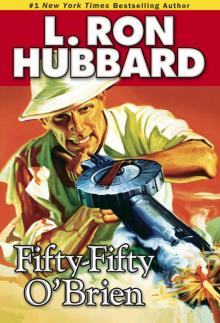 Fifty-Fifty O'Brien
Fifty-Fifty O'Brien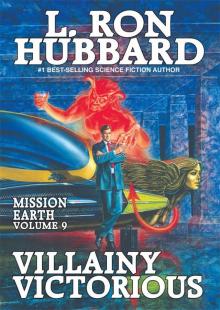 Villainy Victorious
Villainy Victorious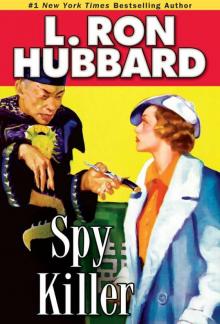 Spy Killer
Spy Killer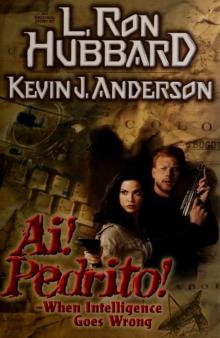 Ai! Pedrito!: When Intelligence Goes Wrong
Ai! Pedrito!: When Intelligence Goes Wrong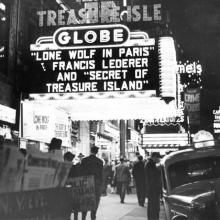 The Dangerous Dimension
The Dangerous Dimension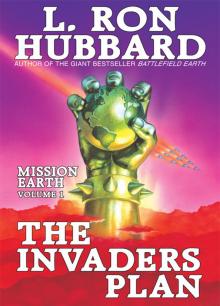 Mission Earth Volume 1: The Invaders Plan
Mission Earth Volume 1: The Invaders Plan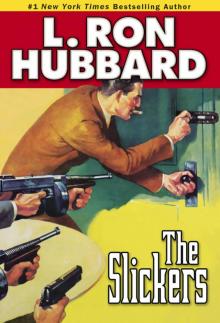 The Slickers
The Slickers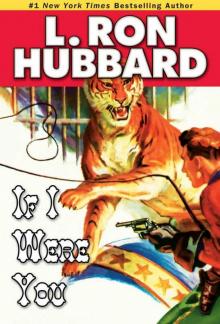 If I Were You
If I Were You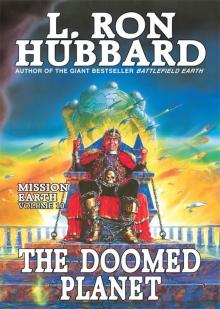 The Doomed Planet
The Doomed Planet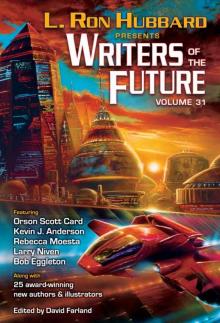 Writers of the Future Volume 31
Writers of the Future Volume 31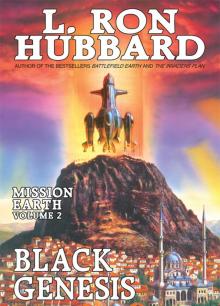 Mission Earth Volume 2: Black Genesis
Mission Earth Volume 2: Black Genesis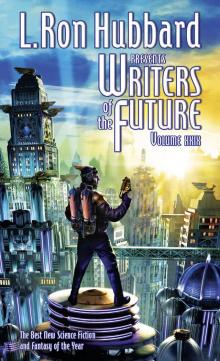 Writers of the Future: 29
Writers of the Future: 29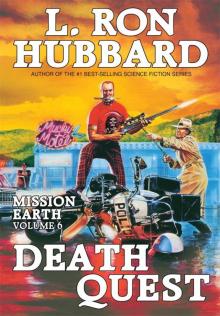 Death Quest
Death Quest The Enemy Within
The Enemy Within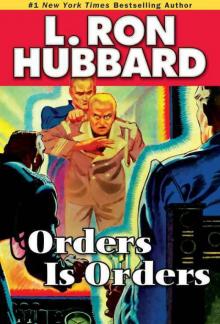 Orders Is Orders
Orders Is Orders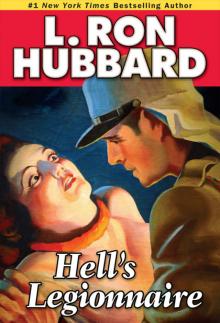 Hell's Legionnaire
Hell's Legionnaire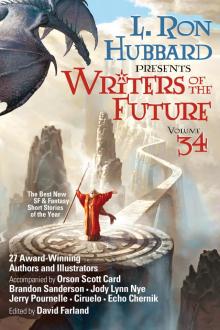 L. Ron Hubbard Presents Writers of the Future 34
L. Ron Hubbard Presents Writers of the Future 34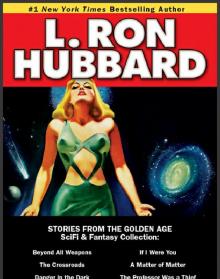 The Scifi & Fantasy Collection
The Scifi & Fantasy Collection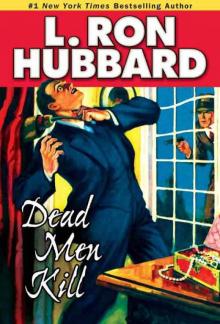 Dead Men Kill
Dead Men Kill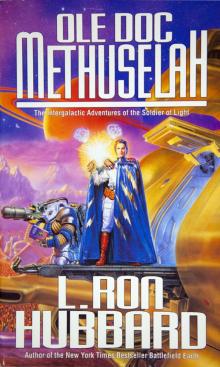 Ole Doc Methuselah: The Intergalactic Adventures of the Soldier of Light
Ole Doc Methuselah: The Intergalactic Adventures of the Soldier of Light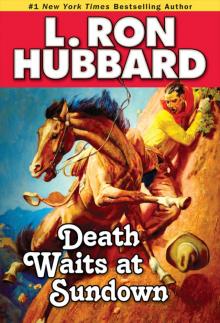 Shadows From Boot Hill
Shadows From Boot Hill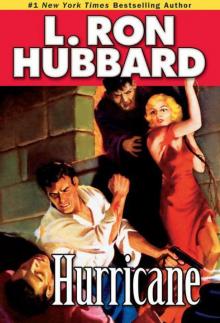 Hurricane
Hurricane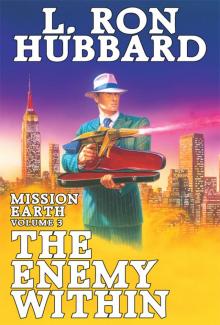 Mission Earth Volume 3: The Enemy Within
Mission Earth Volume 3: The Enemy Within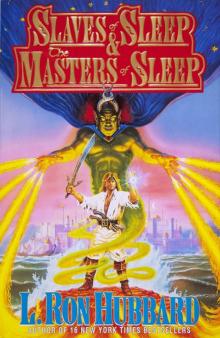 Slaves of Sleep & the Masters of Sleep
Slaves of Sleep & the Masters of Sleep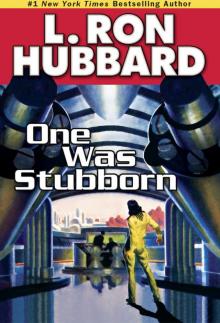 One Was Stubborn
One Was Stubborn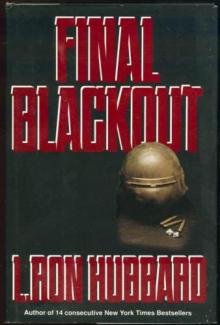 Final Blackout: A Futuristic War Novel
Final Blackout: A Futuristic War Novel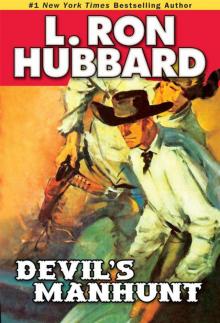 Devil's Manhunt
Devil's Manhunt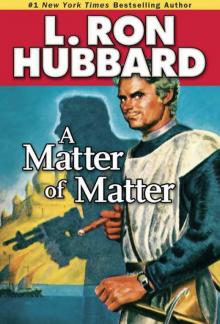 A Matter of Matter
A Matter of Matter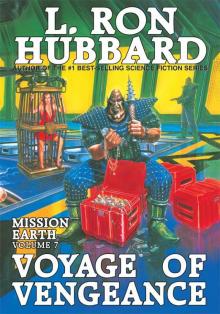 Voyage of Vengeance
Voyage of Vengeance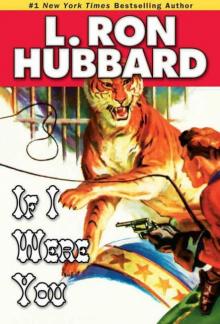 If I Were You (Science Fiction & Fantasy Short Stories Collection)
If I Were You (Science Fiction & Fantasy Short Stories Collection)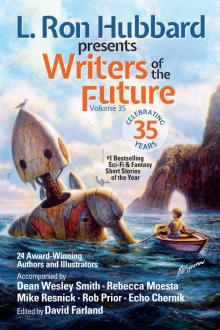 L. Ron Hubbard Presents Writers of the Future Volume 35
L. Ron Hubbard Presents Writers of the Future Volume 35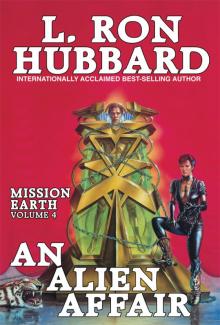 Mission Earth Volume 4: An Alien Affair
Mission Earth Volume 4: An Alien Affair Black Genesis
Black Genesis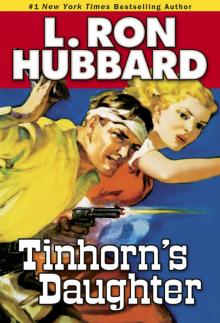 Tinhorn's Daughter
Tinhorn's Daughter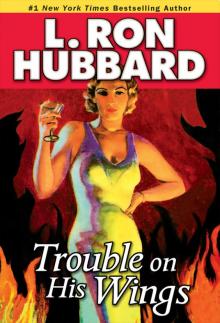 Trouble on His Wings
Trouble on His Wings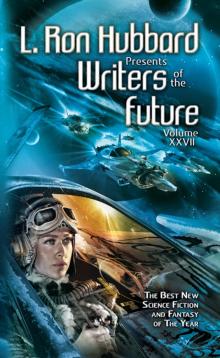 Writers of the Future Volume 27: The Best New Science Fiction and Fantasy of the Year
Writers of the Future Volume 27: The Best New Science Fiction and Fantasy of the Year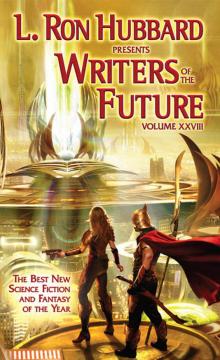 Writers of the Future Volume 28: The Best New Science Fiction and Fantasy of the Year
Writers of the Future Volume 28: The Best New Science Fiction and Fantasy of the Year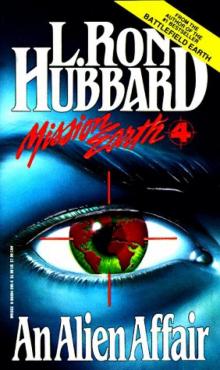 An Alien Affair
An Alien Affair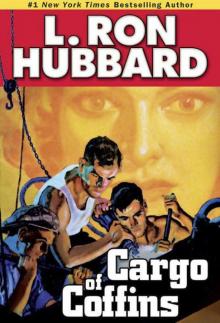 Cargo of Coffins
Cargo of Coffins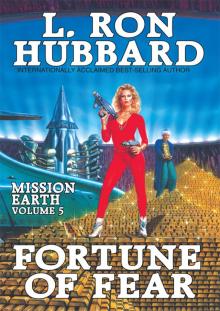 Mission Earth Volume 5: Fortune of Fear
Mission Earth Volume 5: Fortune of Fear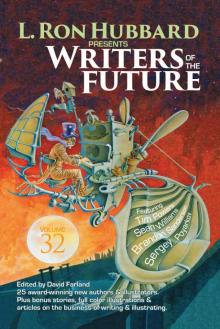 Writers of the Future 32 Science Fiction & Fantasy Anthology
Writers of the Future 32 Science Fiction & Fantasy Anthology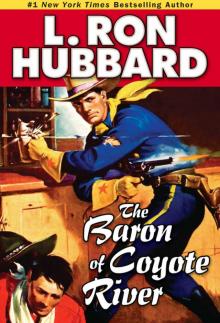 The Baron of Coyote River
The Baron of Coyote River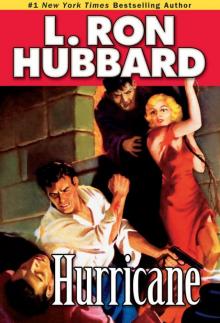 Hurricane (Stories From the Golden Age)
Hurricane (Stories From the Golden Age)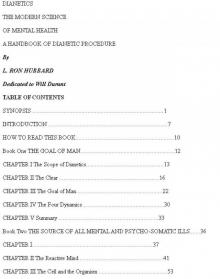 Dianetics: The Modern Science of Mental Health
Dianetics: The Modern Science of Mental Health Writers of the Future, Volume 30
Writers of the Future, Volume 30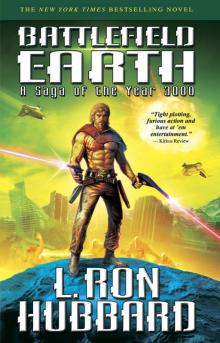 Battlefield Earth: A Saga of the Year 3000
Battlefield Earth: A Saga of the Year 3000 Fear
Fear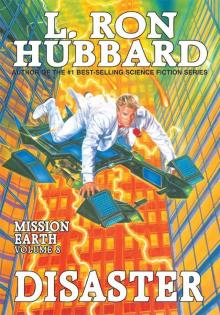 Disaster
Disaster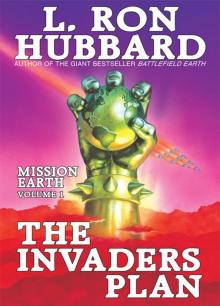 Invaders Plan, The: Mission Earth Volume 1
Invaders Plan, The: Mission Earth Volume 1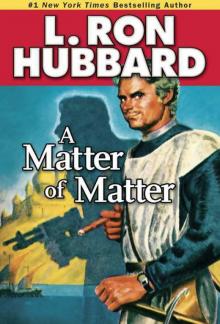 A Matter of Matter (Stories from the Golden Age)
A Matter of Matter (Stories from the Golden Age)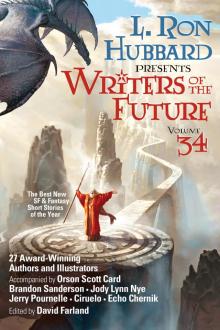 Writers of the Future Volume 34
Writers of the Future Volume 34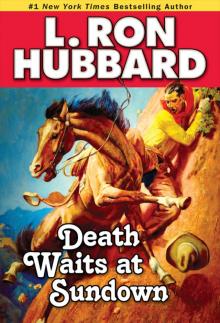 Death Waits at Sundown
Death Waits at Sundown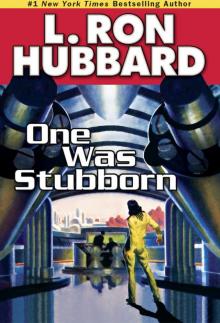 One Was Stubbron
One Was Stubbron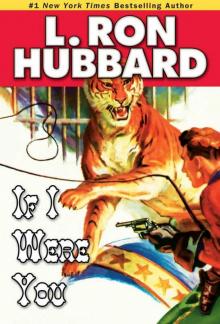 If I Were You (Stories from the Golden Age)
If I Were You (Stories from the Golden Age)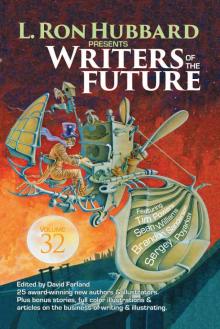 Writers of the Future 32 Science Fiction & Fantasy Anthology (L. Ron Hubbard Presents Writers of the Future)
Writers of the Future 32 Science Fiction & Fantasy Anthology (L. Ron Hubbard Presents Writers of the Future)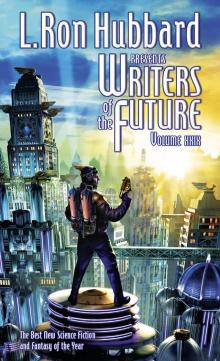 Writers of the Future, Volume 29
Writers of the Future, Volume 29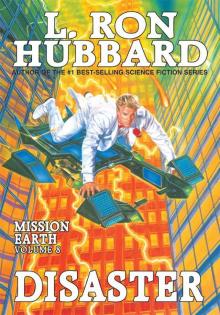 Mission Earth Volume 8: Disaster
Mission Earth Volume 8: Disaster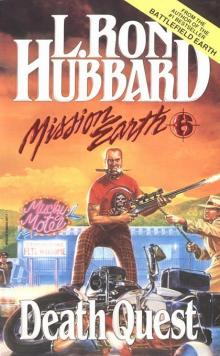 Mission Earth 6: Death Quest
Mission Earth 6: Death Quest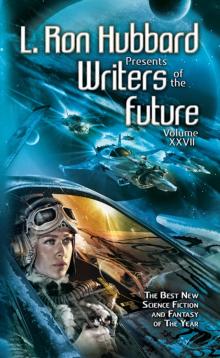 Writers of the Future, Volume 27
Writers of the Future, Volume 27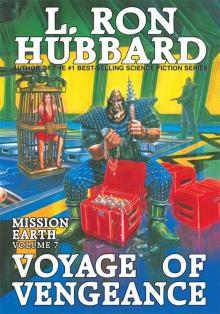 Mission Earth Volume 7: Voyage of Vengeance
Mission Earth Volume 7: Voyage of Vengeance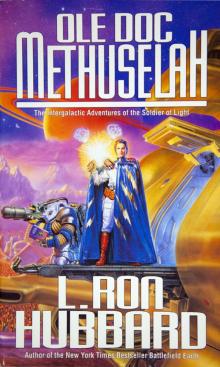 Ole Doc Methuselah
Ole Doc Methuselah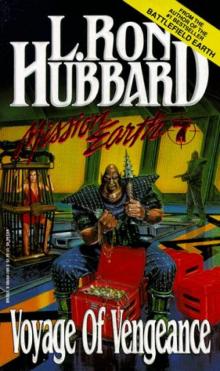 Mission Earth 07: Voyage of Vengeance
Mission Earth 07: Voyage of Vengeance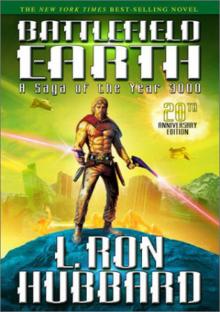 Battlefield Earth
Battlefield Earth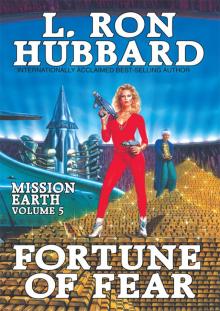 Fortune of Fear
Fortune of Fear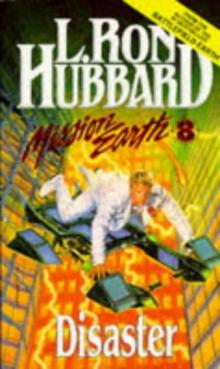 Mission Earth 8: Disaster
Mission Earth 8: Disaster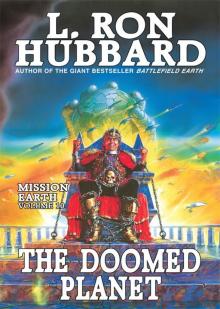 Mission Earth Volume 10: The Doomed Planet
Mission Earth Volume 10: The Doomed Planet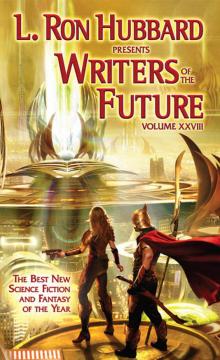 Writers of the Future, Volume 28
Writers of the Future, Volume 28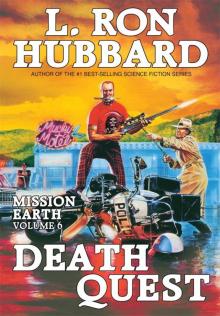 Mission Earth Volume 6: Death Quest
Mission Earth Volume 6: Death Quest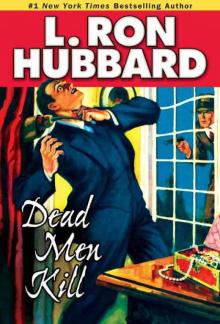 Dead Men Kill (Stories from the Golden Age)
Dead Men Kill (Stories from the Golden Age)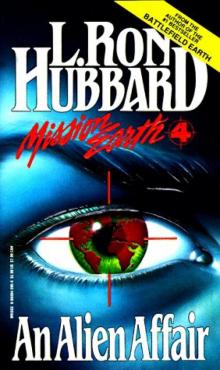 Mission Earth 4: An Alien Affair
Mission Earth 4: An Alien Affair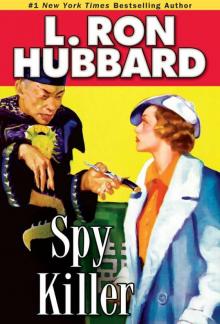 Spy Killer (Stories from the Golden Age)
Spy Killer (Stories from the Golden Age)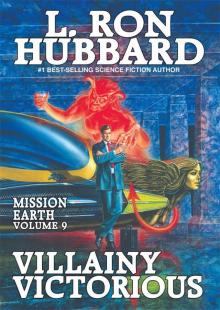 Mission Earth Volume 9: Villainy Victorious
Mission Earth Volume 9: Villainy Victorious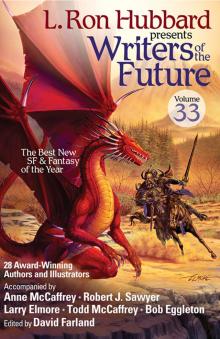 L. Ron Hubbard Presents Writers of the Future, Volume 33
L. Ron Hubbard Presents Writers of the Future, Volume 33